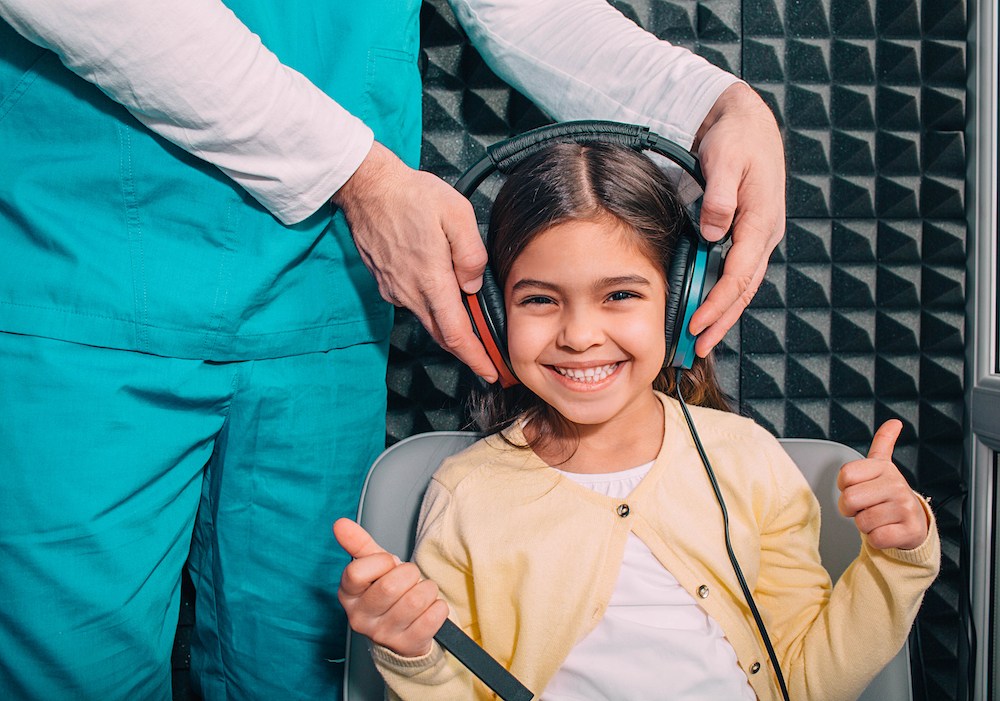
Hearing health is vital for enjoying life and maintaining overall wellness. Hearing loss is quite often preventable and treatable but many people don’t see hearing tests as a priority. If you’re having a hearing test for the first time, you may be feeling apprehensive about the unknown.
Here, we will discuss what is involved in a hearing test and how you can prepare.
What is Hearing Loss?
You may be visiting an audiologist for the first time because you’ve experienced the symptoms of hearing loss. These may include:
- Difficulty following conversations with friends, family, or colleagues.
- Difficulty hearing in a crowded room.
- Ringing or buzzing sounds in your ears.
- Needing to turn the volume up on your TV or when listening to music.
These are all common signs of hearing loss but there may be different reasons as to why you’re experiencing them. It could be as simple as a buildup of earwax or tinnitus. Both of which are easily treatable. You may have hearing loss that requires the use of a hearing aid or you may not have hearing loss at all. Either way, maintaining regular appointments with your audiologist is important.
What to Expect During Your Hearing Test
First, you’ll be introduced to your audiologist. This will be an excellent opportunity to get to know one another a little better and build a rapport that makes future appointments much easier for you both. You’ll then discuss any symptoms you may have been experiencing that could help your audiologist make a diagnosis.
Your audiologist will then explain what will happen during your ear canal assessment and make sure you’re comfortable before beginning. A quick glance will be enough for your audiologist to see any wax buildup. If you have a hearing aid, you’ll need to remove it for this exam. At this point, you will have a further discussion with your audiologist. You may be asked questions about your hearing and what it is like in certain situations. For example, do you have difficulty hearing high pitched sounds?
Your audiologist will also look through your medical history so it’s vital that your audiologist has access to it beforehand or you take a printed version with you. There may be some indication as to why your hearing has worsened. Hearing loss is often linked to other medical conditions.
Finally, you will need to have an audiogram. This is a type of test that helps your audiologist understand your hearing better. You’ll be placed in a soundproof booth with a pair of headphones. Your audiologist will play a selection of different sounds and you’ll need to indicate when you hear them. You’ll usually do this by pressing a button when you hear a sound and the test can take up to thirty minutes.
How to Prepare for Your Test
Often, the more prepared you are for a hearing test, the less uncertain you’ll feel about it. Hearing tests are simple and your audiologist will make sure you feel comfortable throughout. To prepare, the best thing you can do is make a note of any symptoms you’ve experienced over the last six months. It’s easy to forget this information when you’re there in front of an audiologist. Writing it down will mean you won’t forget anything that could be helpful.
It can also help to write down any questions you want to ask your audiologist. If this is your first hearing test, it’s likely you’ll have many questions. Remember, no question is a stupid question. When you attend your appointment, take a pen and notebook with you. You may want to jot down any information your audiologist gives you so you can read it back when you get home.
If you have your medical record and copies of any medication you’re taking, it can help to take these with you too. Allowing your audiologist to get the full picture of your health and wellbeing will ensure you receive the right treatment for your hearing.
Questions Your Audiologist May Ask
It can help to know what your audiologist might ask you at your appointment. Common questions include:
- Do you hear any noises? (ringing, buzzing, hissing)
Have you got any pain in either ear?
Have you ever had any ear infections?
Do any of your family members have hearing problems?
Have you experienced dizziness or balance problems?
Knowing all of this information is the best way to prepare yourself for your hearing test but if you have any queries beforehand, please get in touch with us at GL Wyeno Hearing Specialists PC on (402) 463-2431.



